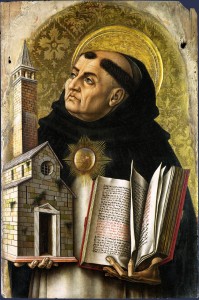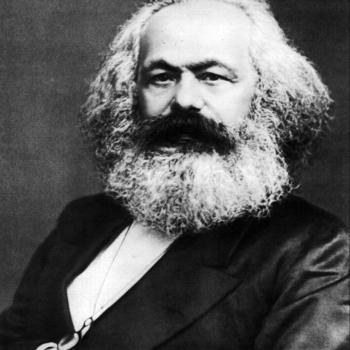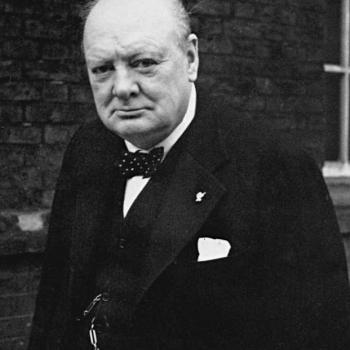
I was trying in my previous post, “Who’s Afraid of ‘Secularism’?”, to provide some clarity on just where David Bokovoy (and the “progressives” he favors) and I disagree on the question of “secularism”. It would be nice to reach an agreement on what we are disagreeing about.
First, we saw, David seems to think there is some difference between us on making available historical facts that some members may not welcome. I can’t see what the difference is. I fully support the Church’s recent initiatives to be more forthcoming about some of the historical matters that some have had difficulty digesting. For my part, I never felt that anything was hidden from me. I don’t see why anyone would expect the polygamy question to be brought up in primary, and whether it’s the most useful theme for, say, seminary discussion, is a question upon which reasonable people can differ. Milk before meat is just common sense. Who would put seer stones in the missionaries’ First Discussion? Or on the front page of the Ensign or Etoile?
When I was a teenager (not in benighted Utah, but well within the secular mainstream of greater Seattle), a senior home-teaching companion introduced me to Dialogue, and I saw immediately that I could learn from it, and also that there were things to take with a grain of salt. Later on I was aware of scholarly work by Hugh Nibley and Truman Madsen, and then a little later by Noel Reynolds and Richard Bushman (just for example – there were many others), and I never doubted that I could find out still more about potentially sensitive topics by consulting these author’s sources and references and by asking people who knew about such things. So I never felt that things were hidden from me, perhaps because I understood the prudence behind the practice of letting people find information according to their interests and their needs.
Of course the explosion of “information” (and much pseudo-information, and worse), unfiltered and unmediated on the internet has changed the game, and so it is natural and good that the Church is “adapting” to new circumstances by being more pro-active in publishing sound information in a suitable frame. If there is a generation that feels surprised by polygamy or seer stones, then I genuinely feel for you, even if I wonder just why stones in a hat should be more offensive to you than, say, stones illuminated by the very finger of the Lord to light a boat, which you might have been expected to read about. But be that as it may, let us say that I have “evolved” in accordance with the times on the information question, so that now I am practically as “progressive” as Brother Bokovoy on this point. So this is not a difference between us.
I note, though, that his question of basic factual information has little to do with the question of “secular” Mormon Studies with which David seems to confuse it.
David shares in a certain excitement regarding a new opening to “Mormon Studies,” and I, in a way, less so. David embraces the takeover of BYU’s Maxwell Institute, which defends itself in the name of this opening, and I have a dim view of some aspects of this takeover. So we can agree thus far on what we disagree about. Fair enough. But let’s get clear on what is at stake.
The difference between us is not that I am incapable of being exciting about new developments in Mormon Studies that include publishing in very distinguished non-Mormon presses and engaging in rich conversations with non-Mormons. I imagine David Bokovoy and I agree that Terryl Givens’s work counts as among such new and exciting advances in Mormon Studies. Now, does David notice what I wrote, very publicly and plainly, in a piece he references, about Givens’s work?
If anyone doubted the possibility of expanding the study of Mormonism and of the Book of Mormon in particular in such a way as to reach the “non-religious” without denying the distinctive truth-claims of Mormonism, then we have the splendid example of Terryl Givens himself to assuage any doubts. Brother Givens has stretched our minds and at the same time enlarged our souls with his studies of the meaning of Mormonism within the broadest spiritual and intellectual contexts.
Does that sound like a suspicious, defensive, doctrinally hardened and narrowly “apologetic” stance towards the study of Mormon things? (And I don’t want to impose any more homework on Brother Bokovoy before he has actually read the article of mine that he references, but he might have noticed my venturesome interviews with Givens at Meridian. From what I have written, one might almost gather that I would be willing to have lunch with Terryl Givens!
And maybe even with David Holland. Here’s what I wrote about Brother Holland’s account of his own work, in another part of my article that must not have shown up on Brother Bokovoy’s computer screen:
In his interest in a universal human seeking David Holland’s perspective points to a breadth beyond the widening circles of contextualization that form Ben Park’s vistas. And a philosopher can certainly appreciate this interest in the inexhaustible forms of the human search for the divine, for whatever answers we think we already possess can be fully appreciated — even, arguably, really understood — and ever-renewed, only in the light of our continued exploration of the fundamental human questions. This suggests a breadth of horizon for “Mormon Studies” that goes well beyond contextualization in the American 19th or any other century.
So it seems that I am at least as capable as an actual progressive Mormon scholar of getting excited about new developments in Mormon Studies, including conversations with scholars who do not share our Mormon beliefs. Contrary to what David Bokovoy writes, I clearly show myself willing, as he would wish, like Givens and Holland, to, in a sense “bracket … certain traditional Mormon claims.” I would have thought it would be clear to David, or to anyone who actually read what I said, that I agree that such exploratory “bracketing” can contribute to a “spiritual journey” of a faithful Latter-day Saint.
So David Bokovoy will have to find some other non-progressive to disagree with on whether the study of “non-Mormon” authors and ideas can contribute to a Mormon’s spiritual journey. My whole life, if I must confess it, has been such a journey, enriched by non-Mormons from Plato to Heidegger, and including non-Mormon “Mormon Studies” authors such as, say, Jan Shipps and Douglas Davies. Just yesterday I was writing about Thomas Aquinas’s beautiful attempt to articulate a synthesis between the Greek idea of a purely intellectual ground of being and the Christian idea of God as Love, an attempt I do not regard as foreign to my effort to understand my own Mormonism. And let me say that I do not think such intellectual adventures are rare among those David Bokovoy would categorize as “conservative.”
My argument is not that the New Mormon Studies is too broad, too bold, and too venturesome. No, I think it risks being too narrow, too “professional,” too limited in the scope of its question and in its sensibilities. And where do I find evidence of this “secular” narrowing? Why, I go right to publications of the New Maxwell Institute and I read what is said there – what a devious strategy!
[To be continued]











